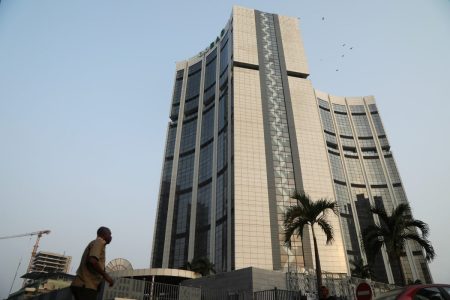Oscarline Onwuemenyi
The Nigeria Extractive Industries Transparency Initiative, NEITI, has accused state governments of not cooperating with anti-corruption officials in the fight against graft in the nation’s oil and gas sector.
The Chairman of the National Stakeholders Working Group, NSWG, of NEITI, Prof. Assisi Asobie, who said this at the launch of the Technical Unit on Governance and Anti-Corruption Reforms, TUGAR, in Abuja, noted that some state governments declined to cooperate and even refused to provide information to the scoping study.
Asobie stated that, “A key obstacle to the successful prosecution of the anti-corruption agenda in Nigeria is that it remains largely a Federal government agenda, and not a national agenda. State and local government have not been consciously and comprehensively integrated in the crusade.
He also noted that the, “Anti-corruption fight in Nigeria remains an executive function: the legislature and judiciary at every level have not been adequately involved in the process. The National strategy to combat corruption has tried to address the issue, but more needs to be done in that direction.
He explained that the report on the Scoping Survey on Anti-Corruption initiatives was “an attempt to map and scope, in a fairly comprehensive manner, the anti-corruption and related governance initiatives and structures across Nigeria, including the constituent states and embracing state and non-state actors.”
Asobie explained that the study set out to provide a data base of initiatives, structures, actors and activities at Federal and state levels and benchmark these against the provisions of the global and African regional anti-corruption conventions.
The report also indicated that the dearth of private sector initiative in the anti-corruption struggle was a major hindrance to the success of the fight to rid the country of graft.
Also speaking in a keynote address at the event, the Secretary to the Government of the Federation, SGF, Sen. Anyim Pius Anyim, stated that the Federal government was determined to increase avenues for the fight against corruption in the country, even as he pointed out that corruption has damaged values in the country.
Anyim stressed the commitment of the Federal government to enact into law the draft Witness and Whistle-Blower Protection Bill in order “to facilitate robust public engagement with the implementation of the National Strategy to Combat Corruption.”
According to him, Nigeria has “encountered the damaging effects of corruption. Inefficiency, dishonesty and all sorts of vices which are by-products of corruption constitute the biggest obstacle to national development.”
The SGF, who was represented by the Permanent Secretary in the Office, Dr. Bede Ibe, added that the self-assessment of the nation’s implementation of United Nations Convention Against Corruption (UNCAC) 2009 enabled it to take a critical look at the anti-corruption agenda and identify gaps and challenges.
“A direct fallout of this self-assessment is the decision by the Inter-Agency Task Team of anti-corruption agencies (IATT) to develop a holistic National Strategy to Combat Corruption, which will give access to all citizens in the fight to combat corruption and enable monitoring and evaluation,” he stated.
He also noted that the myriad of institutions with anti-corruption and accountability mandates have presented the challenge of coordination and holistic monitoring and evaluation.
“TUGAR was therefore established to respond to this critical need to provide synergy, coordinated data and access to public feedback which will serve as inputs for policy making and engender necessary reforms,” he explained.
According to the lead consultant on the project, Mr. Chibuzo Ekwekwuo, “The private sector in Nigeria tend to view the anti-corruption war as the mainly the business of government and, to a lesser extent, civil society organizations.
“Unless the private sector players make it their business to initiate and fight corruption in all its ramifications, little or no success can be achieve in the anticorruption crusade.”
The Technical Unit on Governance and Anti-Corruption Reforms, TUGAR, was established by the Federal government to respond to the critical need for a dedicated institution to monitor on-going anti-corruption and related governance initiatives, evaluate both the structures and their outputs for impact, access public feedback, and generate empirical data which will feed into the policy framework and enable reforms.



